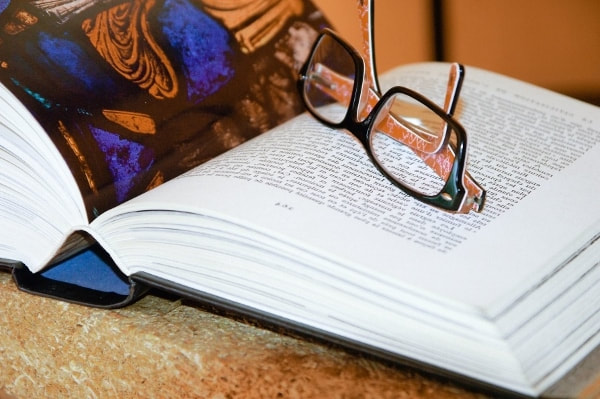While clothes tend to be somewhat emotional, and paperwork is usually an issue because of a fear of misunderstanding, a collection of books can be the result of a multitude of reasons. The main distinctions I have found to be useful to make are these:
This blog article’s focus is on work/research-related books, next week’s instalment will focus on interest-based books. Why the distinction, you may ask? This basic separation is due to the fact that books related to research and work tend to hold a different quality of attachment in general from books you keep for reasons of interest. You’ll see. What is so special about the work/research category, then? For one thing, those books tend to be either used regularly, or they contain information that you might need to fall back on at some undefined time in the future. Usually, these books are extremely specialised, often expensive and/or difficult to get. That in itself makes them an integral part of your work or research, and therefore cannot really be let go. Or can they? The answer to this question depends on the field of knowledge we are looking at: if you are a scholar of Mediaeval literature, books are part of your work, really. Any reprint of an original work is part of what you DO, rather than what you HAVE. You will regularly refer to those books, and to some degree they might fall into the interest-based category (attention: overlap). If, however, you are a rocket scientist, the kind of books you keep could be standard reference books, or the latest in research. Now this you can work with and find ways to declutter! The latest in research is usually published online anyway, so holding on to those books is more likely for emotional reasons than practical ones. Standard reference books tend to be static, and the information contained is most likely available online, with the added bonus that any confirmed errors to the knowledge contained will have been rectified in the online versions. This being said, some standards never change, and there could be a sentimental reason to hang on to some books. If you find yourself cut off from the internet on occasion, or you need to consult certain information on the go, having the book handy could be your best option. And there we are, already firmly entrenched in the subject of WHY you would keep certain books. Indeed, there are practical reasons to keep a particular book or selection of books, but beyond that, you might have more personal reasons to keep them. Those personal reasons have nothing to do with the content of those volumes, but is more closely related with how a book came into your possession, memories assigned to a book, and our old favourite: the sense that it has always been with you and you never question the validity of hanging on to it. In my experience, this last ‘reason’ is a very common one that has to do with our general reluctance to do what I label as ‘maintenance’ of our possessions. Once things are in our lives, it takes an active interest to review their rights to remain in our lives. And let’s face it: most people never do that. Your work/research bookshelf has a higher level of ‘practical’ reasons for books to stay, but it is by no means devoid of sentimental hang-ups. However, this situation gives you one useful additional way to evaluate your books when you think of letting go: rather than looking at sentimental value, first decide if a book is necessary to do your work. If it can be replaced without much hassle by something you can find online, there is room for reassessment and potentially letting go. And THEN you consider sentimental reasons as a second line of defence. If you have enjoyed reading this, you may find these other articles interesting: Comments are closed.
|
Ask the ClutterMeisterIdeas to help clear away the mess in your homes and in your minds.
Feel free to share any of my posts, but please put in a backlink to the original blog post. Thank you. The author
Hi, my name is Tilo Flache. My mission: help clients declutter mind and space.
This blog contains pointers for your journey towards a happier living experience. Archives
November 2023
|



 RSS Feed
RSS Feed




